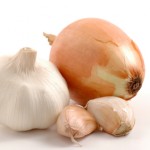What is Endometriosis?
Endometriosis occurs when the endometrial tissue lining in the uterus implants itself out of the uterus on the bladder, bowels, or ovaries. Misplaced endometrial tissue responds just as normal endometrial tissue behaves during a menstrual cycle. The endometrial lining of the uterus routinely sheds each month, but endometriosis tissue is trapped around various organs with no easy exit. It then causes various degrees of inflammation and scar tissue that may cause infertility.
What Causes Endometriosis?
There are various theories on what causes endometriosis. A hormone imbalance with a dominance of estrogen, possibly by ingesting estrogen from foods or by chemical exposure, may promote the growth of endometriosis. A faulty immune system may trigger an inflammatory reaction, and genetics may play a role. A Candida infection also may interact with functioning hormones that may stimulate endometriosis growth.
Symptoms of Endometriosis
The physical symptoms of endometriosis include painful periods and pelvic pain, gastrointestinal or urinary tract problems, and overall fatigue. Endometriosis sufferers have a hard time conceiving due to blocked fallopian tubes or implanted tissue or adhesions near the ovaries. Endometriosis sufferers also tend to have concurrent health issues like chemical sensitivities and allergies, bloating, constipation and diarrhea, chronic fatigue syndrome, urinary ailments and all-too-frequent vaginal yeast infections. Many of these disorders sound very similar to a Candida overgrowth.
So What Causes a Candida Overgrowth?
Candida causes symptoms when it outnumbers other beneficial bacteria as a result of taking antibiotics, oral contraceptives, immune-suppressing drugs or because of overall decreased health and decreased immunity. Supplementation with acidophilus and other probiotics is necessary while taking any form of antibiotics.
The Link Between Endometriosis and Candida
Many women who successfully treat and manage their Candida overgrowths have simultaneous success in treating their endometriosis. When the Candida is controlled, overall better health results and often the endometriosis symptoms abate. When the endometriosis is controlled, the ability to conceive greatly improves.
Endometriosis Treatment
Treatment for endometriosis requires a medical work-up for accurate diagnosis. Medications, including hormone therapy, are used but surgery is often required to remove the endometrial tissue. Treatments can be effective with eradication of the endometriosis. But if traditional methods and approaches to treating endometriosis are unsuccessful, an underlying Candida infection may be the culprit. If a woman’s medical history includes chronic vaginal yeast infections, waxing and waning of gastrointestinal or urinary tract infections, along with chronic fatigue and pelvic pain, Candida may be lurking and needs to be treated.
Diet to Eliminate Candida
Addressing a Candida infection requires modifications to diet. Avoiding sugar intake and ignoring a sweet tooth can eliminate Candida. Sugar feeds the yeast, and Candida may cause sugar cravings. Beware of hidden sugars in foods and read labels. Probiotic supplementation in the form of capsules, tablets or consuming yogurt with live acidophilus will benefit the gastrointestinal and vaginal flora. Sensitivity to mold can be triggered by eating foods such as cheeses and dried fruits. Alcohol can also feed the Candida and a woman seeking to conceive should eliminate alcohol.
An endometriosis diet is similar to an anti-Candida diet, not only to alleviate the endometriosis symptoms, but also to help to normalize hormone levels and encourage good health. Eliminating foods that aggravate symptoms can also reduce estrogen levels and lower prostaglandins (hormones stimulated by estrogen) that can be held accountable for painful cramps. Introduce fiber through complex carbohydrates and vegetables, and supplement with Omega-3s (fatty acids) in the form of flaxseeds, fish and certain nuts to reduce inflammation in the body. Soy products should be avoided in women who are sensitive to estrogen.
When Change in Diet is Not Sufficient
If diet changes do not do an adequate job of eradicating the Candida, a woman may need to be treated with over-the-counter antifungal creams or even oral antifungal medication to address the Candida. A healthcare provider can assess the situation and prescribe the appropriate medication or protocol to treat the Candida.
For women suffering from endometriosis and Candida, a Candida-eliminating lifestyle works hand-in-hand to attain overall better health with a reduction of yeast in the body as well as to treat the endometriosis. A nutritious regimen can maintain good weight, avoid spikes in blood sugar (which will help to control Candida) and give a woman a good foundation prior to conception. Once the Candida is controlled, management of the endometriosis often improves as well, and fertility becomes more of a possibility. Maintaining a healthy nutritious balance and eliminating bad foods is central to easing symptoms of endometriosis as well as eliminating Candida.
 About the Author
About the AuthorEric Bakker B.H.Sc. (Comp.Med), N.D, R.Hom. is a highly experienced naturopathic physician who has been in clinical practice for 25 years. Eric is passionate about improving people’s lives through proven wellness and lifestyle principles, natural medicine practice as well as public and professional practitioner education. Eric specializes in candida yeast infections, as well as adrenal fatigue, and thyroid disorders. Dr. Bakker has written one of the most comprehensive books on yeast infections called Candida Crusher.
References:
1. http://www.nlm.nih.gov/medlineplus/endometriosis.html
2. http://www.webmd.com/skin-problems-and-treatments/guide/candidiasis-yeast-infection
3. Ballweg, Mary Lou. The Endometriosis Sourcebook. Contemporary Books, 1995. ISBN 0-8092-3263-4.
4. Ballweg, Mary Lou. Endometriosis: The Complete Reference for Taking Charge of Your Health. Contemporary Books, 2004. ISBN 0-07-141248-4.
5. Current Approaches to Endometriosis, Patient Care, Jan. 15, 1997, pp.34-38
6. Endometriosis: A comparison of associated disease histories. Am J Prev Med 2:324-329
7. Additional Information Regarding the Link Between Candida and Endometriosis





No comments:
Post a Comment